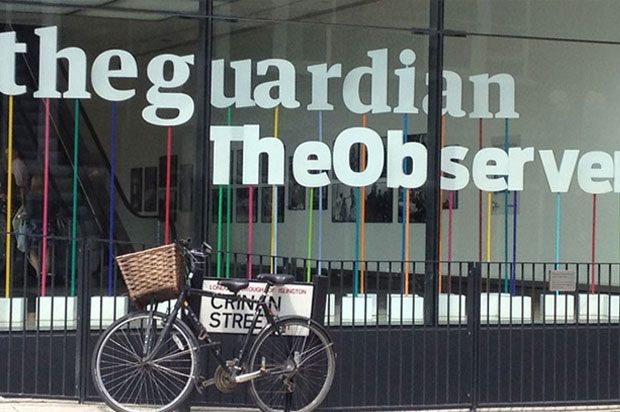Storymakers: Session one
YouthNet is in the midst of scoping the development of an ambitious user generated content platform that will allow young people to create and share their own content while getting training and building skills. One of our volunteers, Eva Pirpinia, talks about her involvement in the scoping process.
On Wednesday, the 23rd of January, the first session of ‘Storymakers’ took place at a prestigious and highly relevant location: The Guardian offices. What better way to start a Storymaker project than surround ourselves with one of the most prominent disseminators of digital and printed content in the world?
My name is Eva, I am 22 and I’m an MA Publishing student and an aspiring marketing/publicity assistant. I may be good with books, but orientation is not my strong point. I got lost (my phone and my Google Maps died) but eventually I did find my way to the offices, after a bit of asking around and fiddling with revolving doors (you can tell I am a conventional door person).
One of the things I appreciate most when I find myself surrounded by strangers is being comfortable, and I am quite happy that the leaders and the participants of the project achieved that to a high extent. This is a summary of what our session consisted of:
We kicked off with an icebreaker activity that consisted of matching the ‘First Facebook photo’ with the face in the room. We also asked questions and found out random, fun facts about other people, which is pretty much what we do on social media; we post facts ourselves and read facts from others; we deal with visual and verbal content.
The second part of our session consisted of Matt McAlister (who works for the Guardian) presenting the Guardian’s own user generated content platform, Guardian Witness, to us. Guardian Witness poses a question each week and the public are encouraged to respond with photos, videos, text or any other form of content. The best pieces are then featured on the Guardian site. It is a great example of user-generated content, and, I daresay, a step towards the democratisation of information. As a result of platforms like this, the dissemination of information, nowadays, is not a privilege of a handful of journalists but rather a global project that allows all sorts of different opinions to be heard.
Most importantly, these opinions are available to be read and interpreted on a large scale,since they are contributed to a prominent newspaper with a very wide audience. The most fascinating part of the session was creating personas. We were divided into groups and were given the task of creating a social media persona. The personas could easily be real people, and we all put effort into making them diverse and unique. We wrote down their activity on social media, and put together ideas on how to improve their social media presence so as to achieve different aims. This activity not only unleashed my creativity but made me aware of how social media can transform our lives and how masterfully it can be manipulated in order to allow us communicate different messages, may it be a feminist manifesto or an awareness project.
The last part consisted of each group being given a different campaign, and we had to brainstorm ideas on how our persona could contribute to this campaign by engaging with social media. As an aspiring book campaign/book marketing assistant, this activity helped me develop the skill of crafting strategies based on the most popular social media (e.g. create a hashtag, post a song) and think out of the box.
The participants of the workshop are all motivated and incredibly eloquent, and it is such fun to hear everyone speak and offer their own perspective. All in all, it was a great, fun session and now I am looking forward to participating in the next one, which I hope will include a tour of The Guardian!
(In the meantime, I will fully charge my phone before I leave my house so as to make sure I won’t get lost again.)
By
Published on 23-Feb-2015
No featured article











